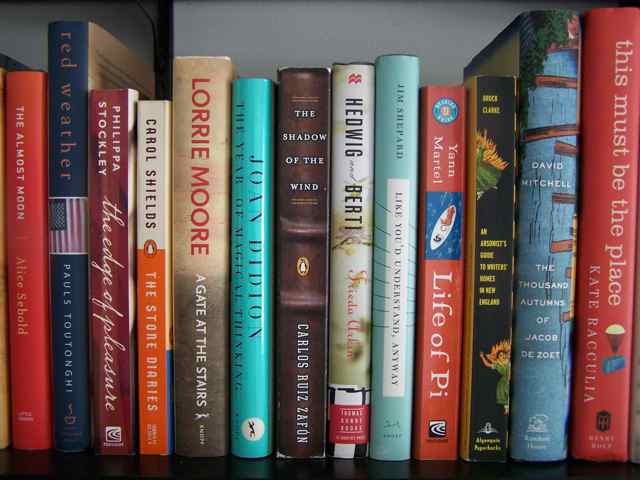 Audiobook Review The Widower’s Tale by Julia Glass – like her first novel, Three Junes – takes characters from different generations of an extended family and explores their interactions with each other and with the wider social circles they belong to. What characteristics are handed down through the generations? How do the family members respond in times of personal or public crisis? How strong are their family bonds?
Audiobook Review The Widower’s Tale by Julia Glass – like her first novel, Three Junes – takes characters from different generations of an extended family and explores their interactions with each other and with the wider social circles they belong to. What characteristics are handed down through the generations? How do the family members respond in times of personal or public crisis? How strong are their family bonds?
The Random House Audio edition of The Widower’s Tale is excellent. Although narrator Mark Bramhall’s accent for Percy Darling, the 70-year-old widower of the title who tells a good part of the story in the first-person, made me think of Maine, the setting for the book is actually “Matlock”, a fictional rural-turned-upscale western suburb to the west of Boston. (Maybe similar to the author’s hometown of Lincoln, Mass.?)
Percy Darling owns an historical house with a converted barn on a pond – a property that is now worth a fortune. But Percy is a bookish man, an unapologetic intellectual, and a retired Harvard University librarian. He thinks of it only as the property on which he raised his two daughters (now married with children): a house that needed a lot of TLC when he and his dead wife bought it so long ago, the barn where she had her beloved dance studio, and the pond in which she drowned. All of which – until the start of the book – Percy has kept exactly as it was when his wife died.
At the start of The Widower’s Tale, Percy is heading firmly into curmudgeonhood – set in his ways, rebuffing all attempts to jolly him into flexibility, and bemoaning the slothfulness of today’s youth. He has taken up jogging to get in shape for the “hard work” of dying. But he has agreed to allow the barn on his property to be used as a preschool named “Elves & Fairies”, and thus has opened the floodgates of change, endangering the established order and threatening his carefully hoarded memories of his wife.
The author tackles a lot of current issues in The Widower’s Tale (including gay rights, environmental activism, undocumented immigration, universal health care, and breast cancer) that almost overwhelm the main characters’ stories at times, but the characters of Percy himself, his college-student grandson Robert, and Ira, a teacher at the new preschool, have remained strong in my memory for weeks after listening to the audiobook, along with the stories of many of the wide supporting cast of characters.
The story of the fourth main character, Celestino, a Guatemalan who has been working illegally in the U.S. for years, was the only one that seemed contrived to home the author’s point that there are smart, decent immigrants in this country working for low wages who differ from Americans only in lack of money and opportunity. Celestino is smart and pleasant; he becomes friendly with Robert, despite their differences in age and social status; eventually, like Percy, he has to let go of his romantic idea of the past.
The Widower’s Tale, with its themes of social justice and economic injustices, would make a good choice for a book discussion group with liberal leanings or with members who would enjoy discussing the author’s clearly liberal stance on these issues.
Listen to an excerpt from the audiobook here.
Read more about The Widower’s Tale in this Bookslut author interview.
Other Opinions (All Good):
Book Club Classics
Literally Booked
Sommer Reading
